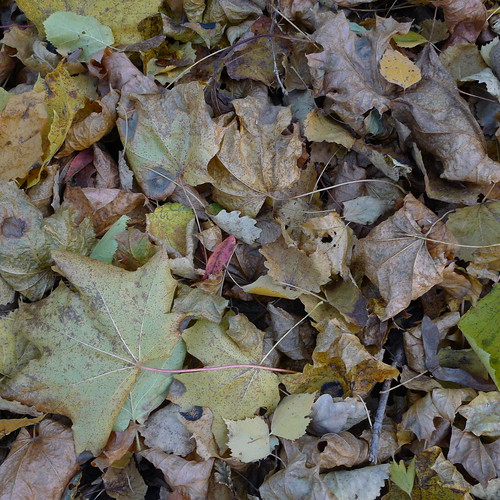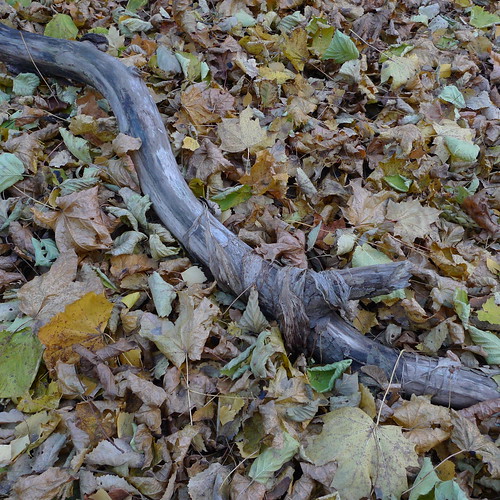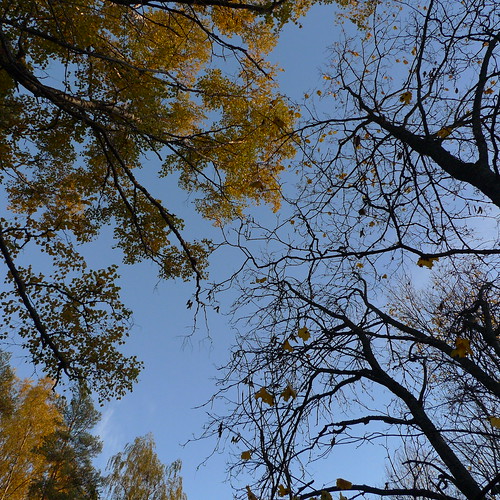Markus Spring graciously provided feedback about my photographs, of which I'm thankful. And he had quite an impressive photograph of his on display.
However, instead of feeling good, my first reaction to reading his words were "Oh no!" And then I had to think a bit to find out why I got such a response.
Markus was writing about the "practice, practice, practice" aspect of photography, the fact that only by trying and failing can you learn a skill (whatever skill it is). And he is very much right in stressing the importance of practice.
I think I got the "Oh no!" reaction because of the fear (which is of course quite unreasonable) of being pressed into performing. Photography is for me an avenue for relaxation - and also being outside walking, with physical health benefits as well - and thus photography is a hobby which could be easily destroyed by feelings of having to perform, having to produce great photographs, or anything of that kind.
Maybe I'm a bit strange in this respect. Many people have hobbies where they aim high and really like the positive feedback they get. In fact, the feedback can be a central source of motivation for the hobby. But for some reason this is a difficult thing for me to handle - things turn too serious too easily. Maybe some facet of personality I can't easily analyze myself.
Also, this may have something to do with the Finnish mentality. I read a nice story about this in a book by Olavi Toivola. (The book is Johtajan ilo ja tuska - kokemus opettaa. Some impressions of the book are here in Finnish.) This is from memory as I don't have the book any more.
Toivola tells a story about two daughter companies of an American paper company. The other is French and the other Finnish. The American company gives new challenging targets on quality and productivity to the daughter companies. To discuss the new targets, an American executive visits first the French company and then the Finnish one.
In France there is a party (with sparkling wine of course). The French staff is celebrating the certainty of reaching the goals because there is such a great team appointed to lead the work. In Finland there is a short business meeting where the Finnish staff say that the targets are hard to reach but they have already started working on this.
After the deadline, the executive visits the daughter companies again. In France there is again a party, the staff celebrating that they have achieved 80% of the target and still progressing. However, in Finland there is a short business meeting, where it is noted that all the targets have been achieved. However, the Finnish staff note that they understand that even harder targets will be set in the future, so they are working on progressing beyound the original targets. At this point the American executive comments to the Finns: "Maybe you should try celebrating sometimes."
So, maybe what is needed is to forget the worry and have fun with whatever you do, and don't mind the results.
And there is always the choice of stopping if things get too stressing. Also, I have a feeling that a drawback to the digital world is the immediacy of feedback. Waiting some days to see how your photographs look developed, that wasn't necessarily a bad thing. You had a better perspective on what you did.
Tie-up
9 hours ago






4 comments:
My experience is that once you learn how to relax, then results come anyway; that is provided that you have the necessary skills to overcome the technical aspects in the first place. Secondly, digital does encourage me to be hasty in presenting my work. Usually, I find that it pays to reflect for a while, maybe even leaving my efforts well alone and then revisiting them with greater objectivity at another time. My photography is my artistic outlet and if I feel the need to perform I go out and ride my bike fast.
Juha, the word practice can also be understood as exercise in the sense of repeating and training, which surely is part of Zen education. But I prefer its meaning of doing, maybe relentlessly doing, not as a value in itself but for results, in our case images that transport what we see or feel. So practice, practice, practice for me is doing it, trying to improve, learning to see, trying to find out which factors have what influence on the result - and doing this not only once a month but really often, maybe daily, if time permits. And as I do it for the images I like and see some progress, I don't get tired with it. The "having to" is not part of my equation, at least not because of any outside stimulus.
Toivola's explanation about the Finnish mentality is wonderful, and as you publicize it here, it probably is true, at least to a certain extent. I just completed reading Petterson's "Out stealing horses", which, despite playing in Norway, also transport a bit of the kind of melancholy, severity, that often gets attributed to Northern Europeans.
The immediate availability of results in digital photography does bother me (Using several memory cards could easily solve this problem), instead I profited tremendously from the immediate feedback as well as the almost zero marginal costs. I guess your 125.000+ images would have violated most reasonable budget limits.
Many words, all about theory, none about today's images: #2 is my favourite this time, as it brings in that additional twist, that wit that makes a good image stand out from its peers.
Just want to say how much I enjoy your blog. The pictures are beautiful and remind me of the U.S. state of Maine, where I grew up. In fact, in my part of Maine there were many descendants of Finnish families who had settled there, probably because the landscape reminded them of home. I enjoy your comments on cameras, especially the LX3, which you use so beautifully. And I know what you mean about getting too serious with photography. For me, it is a way to relax, although sometimes I find myself pushing over into a situation where I am taking it too seriously. Anyway, thanks very much for sharing your thoughts and your good work.
Drew Sanborn
http://ingallsgrove.wordpress.com
@Colin: Indeed, revisiting brings new light on old efforts.
@Markus: You seem to have a really thought out approach to photography. One of the hardest things is to combine the conscious and non-conscious processes so that they support each other.
@Drew: Thanks for telling about Maine, and for the link.
Post a Comment